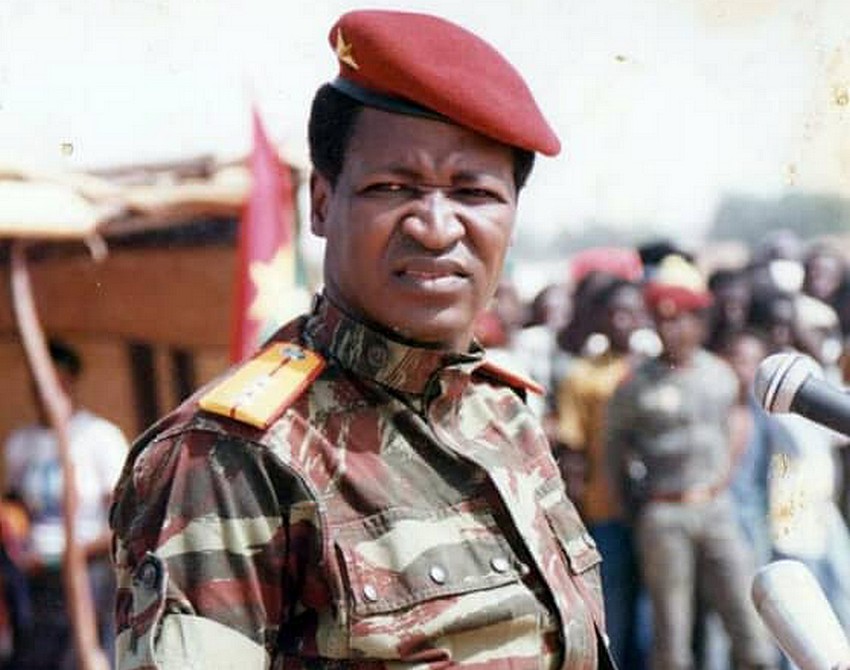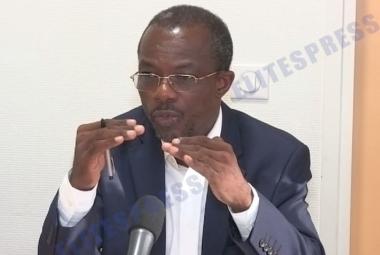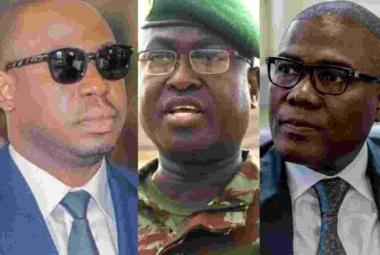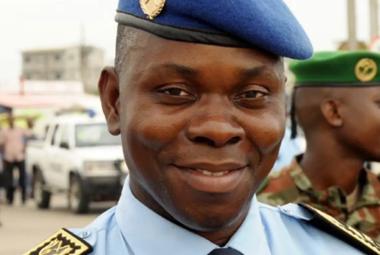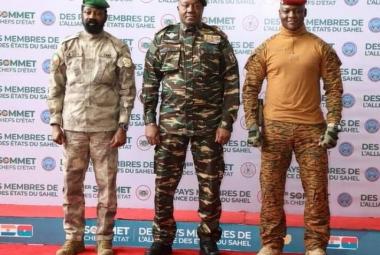Blaise Compaoré took power on a memorable October 15, 1987. And he will have signed his departure from power the same month, but 15 days after this unforgettable anniversary for many Africans: that of the assassination of his friend and comrade in arms, Thomas Sankara known as “Thom Sank, the Captain-People”.
The now ex-President Blaise Compaoré was born in Ouagadougou on February 3, 1951. But he is from Ziniaré, a small town located north of the capital of Burkina Faso. Son of Bila Maurice Compaoré and Tiga Thérèse Bougouma, he is the eldest of a family of seven children. Like many citizens of the former colonies who served under the French flag, his father, once demobilized in 1947, became the Republican Guard in Burkina, then Upper Volta. It is between Ziniaré and Boromo that the young Blaise Compaoré will grow up.
In Ziniaré, he began his primary studies at the Guilongou school. Once completed, he joined the Saint-Joseph Catholic College in Fada N'Gourma, towards the south-eastern border with Benin Republic. The second cycle of college, he begins at the Normal School of Ouagadougou. Without this being verified, some say that he was one of the initiators of the college movement of 1971. As a punishment, he was therefore automatically enrolled in the special contingent of the Army. Still, when Blaise Compaoré got his BAC D in 1972, he was already in the army. His childhood dream comes true.
The military
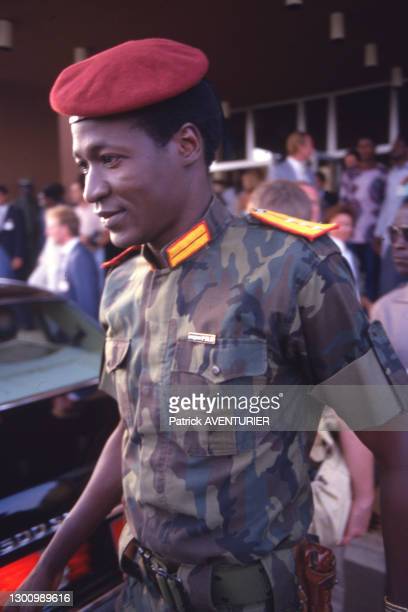
Shortly after joining the army, Blaise Compaoré was lucky enough to be assigned to security at the home of President Sangoulé Lamizana. Then, he passed the entrance exam to the Inter-arms Military School (EMIA) of Yaoundé in Cameroon for his first training abroad in 1973. Just like his friend Thomas Sankara. Then he did many other training courses in Europe, in particular: specialization at the Montpellier Infantry School, commando instruction in Montlouis, Collioures in France and Munsinghem in Germany, internship within the Airborne Troops of France, etc.
In truth, the political awareness of the man is born in Madagascar, when they follow their training there at the Military Academy of Antsirabé with his friend Thomas Sankara. The latter is Marxist and will influence Blaise Compaoré with his progressive ideas on the future of their country. It is together, with Boukary Kaboré called the "Lion of Boulkiendé", Jean-Baptiste Lingani and Henri Zongo that they will create the ROC (Regrouping of Communist Officers) once back in the country.
Blaise Compaoré was first assigned to the Airborne Intervention Company (CIA) in Bobo-Dioulasso in 1978, before occupying the position of Aide-de-camp to the Chief of the Defense Staff in 1980, and in 1981 that of Head of the National Commando Training Center (CNEC) in Pô. After an internship in Pau in France in 1982. And it was that year that he became Captain, and that he will remain elsewhere until his entry into politics. It should be emphasized that his friend Thomas Sankara preceded him to Pô in 1976 as Commander of the CNEC.
From army to politics
Under Colonel Saye Zerbo's Military Recovery Committee for National Progress (CMRPN), which succeeded the Third Republic in 1980, Blaise Compaoré was an integral part of the young officers. His friend Thomas Sankara too. But they will quickly mark their differences with the CMRPN. And they will let it be known by slamming the door. Arrested on May 14, 1982 and placed under house arrest, their salvation would not come until November 7 of the same year when the People's Salvation Council (CSP) seized power. But the latter appears, more or less, like a CMRPN bis. And again, Blaise Compaoré and his friend Thomas Sankara do not find themselves there.
May 17, 1983 marks a pivotal date for the rise of young progressive officers. Captain Thomas Sankara, who became Prime Minister four months ago, Commander Jean-Baptiste Boukary Lingani are arrested. Blaise Compaoré, meanwhile, managed to escape and join the National Commando Training Center (CNEC) in Pô. It was therefore from their original camp that he decided to march on Ouagadougou to free his comrades in arms who had been arrested on August 4, 1983. It is the famous "Revolution of August 4" whose name the stadium of Ouagadougou bears today, in homage. The popularity of his friend and ex-Prime Minister Thomas Sankara was then at its zenith. And the people of Burkina, still called Upper Volta, get involved. The release of the prisoners is achieved thanks to the concerted action of the commandos of Pô and the inhabitants of Ouagadougou. Thus was born the National Council of the Revolution (CNR) which will be chaired by Captain Thomas Sankara, and at the same time President of the Republic. Blaise Compaoré enters the resulting government as Minister of State Delegate to the Presidency, and Minister of State in charge of Justice.
President
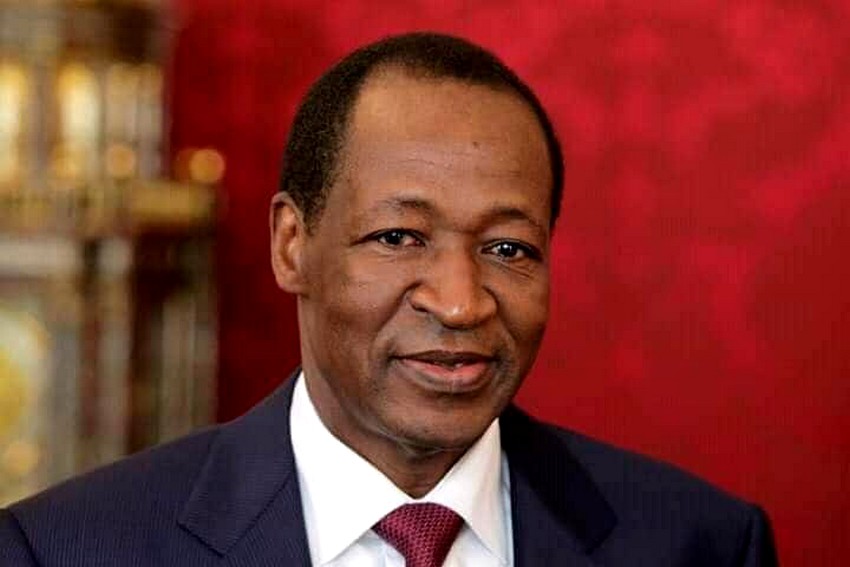
On October 15, 1987, the whole of Africa was appalled by the announcement of the coup d'Etat during which President Thomas Sankara was assassinated. Even more dismayed when she learns that the author is none other than her own and inseparable friend and brother in arms, Blaise Compaoré. Thomas Sankara is not only buried in a hurry, but also without a funeral. As if that were not enough, a real smear campaign ensued: he was called names.
Following Thomas Sankara, the first purges will fall on the heads of Henri Zongo and Jean-Baptiste Lingani. Accused of an attempted coup, they will be executed after a speedy trial. Blaise Compaoré becomes the initiator of the "Rectification" with the Popular Front (FP), the day after the assassination of Thomas Sankara, the so-called "deviationist".
In 1991, he was elected President of the Republic with only 25% of the vote. After having refused the organization of a Conference of the living forces of the Burkinabe nation. On the grounds that "the National Conference" invented by Benin Republic to move from the single party to democratic pluralism is not "a ready-made straightjacket".
Under his regime, Norbert Zongo was assassinated on December 13, 1998, with his three companions, namely Ernest Zongo, Blaise Ilboudo, and Ablassé Nikiéma. The journalist was investigating the mysterious death of David Ouedraogo, the driver of François Compaoré, the brother of Burkinabe President Blaise Compaoré. But the official investigation into this dubious death of the journalist ends in a dismissal. Not without arousing the ire of colleagues, relatives and relatives of the victims.
After two consecutive seven years, Blaise Compaoré does not hesitate too much to stand as a candidate in 2005. The opposition may show him the unconstitutionality of his approach, he does not care. By an extraordinary constitutional acrobatics which reduced the presidential mandate to a five-year term renewable once, he was elected with a Soviet-style score: 80.35% of the votes. But Blaise Compaoré who was re-elected for his last term on November 25, 2010 with 80.15% persists in wanting to modify article 37 which limits the number of presidential terms. At the risk of sparking a serious socio-political conflict in his country. The height for a mediator and man of peace. The epinal image of a President at the head of a stable country and omnipotent mediator in various conflicts is only for external consumption. Africans, for the most part, have always seen in Blaise Compaoré the liege man of France.
On February 21, 2011, Justin Zongo, a student from Koudougou whose death in the police station of Koudougou is attributed to the police set fire to the powder. The police who deny not being responsible for it and indicate that he died of meningitis but commit the awkwardness of shooting at the demonstrators unhappy with the tragedy. In response, they set fire to the governorate of the province. Like a trail, the protests spread and received the support of all civil society actors. And the police repression killed seven people in all the cities affected.
The military mutinies which will follow in April and which almost carried away the regime of Blaise Compaoré are in fact only the extension of the deep socio-political malaise which has been smoldering in the country since. Faced with the revolt of the soldiers, including some of his own presidential guard, Blaise Campaoré fled in the night, to take refuge first in the former presidential palace in Ouagadougou, and then at his home in Ziniaré. When he regains control, he now takes over the Ministry of Defense and reorganizes his government to a large extent. By appointing the journalist and current Prime Minister, Luc-Adolphe Tiao, until then Burkina's ambassador to Paris. A great purge ensued within the army and a renewal of the entire chain of command.
The end of a reign
When Blaise Compaoré expressed his desire to stay in power, dissidence emerged even within his party, the Congress for Democracy and Progress (CDP). Their names are: Zéphirin Diabré, Simon Compaoré, Salif Diallo to name a few. They create their own party. Never mind the warning is not enough. He wants to count with time. Following the failure of the political dialogue he initiated with his opposition led by Zéphirin Diabré, Blaise Compaoré wants to persist in revising the Constitution at all costs to run for president in 2015. On October 28, a wave of human of several tens of thousands of opposition demonstrators invaded the streets of Ouagadougou to say no to the revision of article 37 of the Constitution. Which article limits presidential terms to two, and suddenly prevents Blaise Compaoré from lingering in power. Zéphirin Diabré warns: "it's make or break...". But he maintains the vote scheduled for October 30. Its majority is even already acquired in the National Assembly, with the last minute rallying of the ADF / RDA. It was on that day that everything changed. The opposition demonstrators invade, without any particular resistance, the National Assembly, which they ransack and burn. Houses of deputies in power too. The situation escalates and we hear sporadic gunshots here and there. Because the demonstrators threaten to march on Kosyam, the presidential palace of Blaise Compaoré. The Internet connection is interrupted. But the phone lines are not cut. The airport is closed and diverted flights to Cotonou.
In this confusion, the demonstrators are calling on the very popular General Kouamé Lougué to take responsibility to avoid chaos. The latter talks with the Moro Naba, the Emperor of the Mossi and the opposition. Consultations and other political and diplomatic negotiations follow one another. In the evening, the Chief of Staff of the Army, General Honoré Traoré declares the dissolution of the National Assembly, of the government as well as the establishment of a curfew from...And he announces a transition from 12 months without specifying who will chair it. Later, an intervention by Blaise Compaoré himself adds to the confusion. “I heard the message, understood it and took full measure of the strong aspirations for change. I remain available to open talks with you for a transition period after which I will hand over power to the democratically elected President. With a view to re-establishing this dialogue, I have decided to withdraw the contested bill and proceed with its cancellation. (…) To allow each of the parties, the political opposition, civil society and the majority to resume the thread of dialogue in serenity, I decide the following: the government is dissolved; as of this day, October 30, I declare canceled the state of siege throughout the national territory”.
Be that as it may, and as Thomas Sankara often said: "when you play, you win or you lose, it can't be both at the same time". Blaise Compaoré played his last game, and he lost it. The rest was only a matter of time... On October 31, faced with the persistence of the opposition in demanding the pure and simple departure of Blaise Compaoré, Lieutenant-Colonel Zida of the Army General Staff came to the Place de la Nation to declare: "Compaoré is no longer in power". A statement that the opposition demonstrators who had stormed the Place de la Nation, renamed "Place de la Révolution" on the occasion, welcomed with popular jubilation. Thus ends the 27-year reign in power of Blaise Compaoré.
Since then, Blaise Compaoré has taken refuge, so to speak, in Ivory Coast, of which he has taken nationality. Even if he never ceases to express his wish to return home permanently.
By Marcus Boni Teiga



